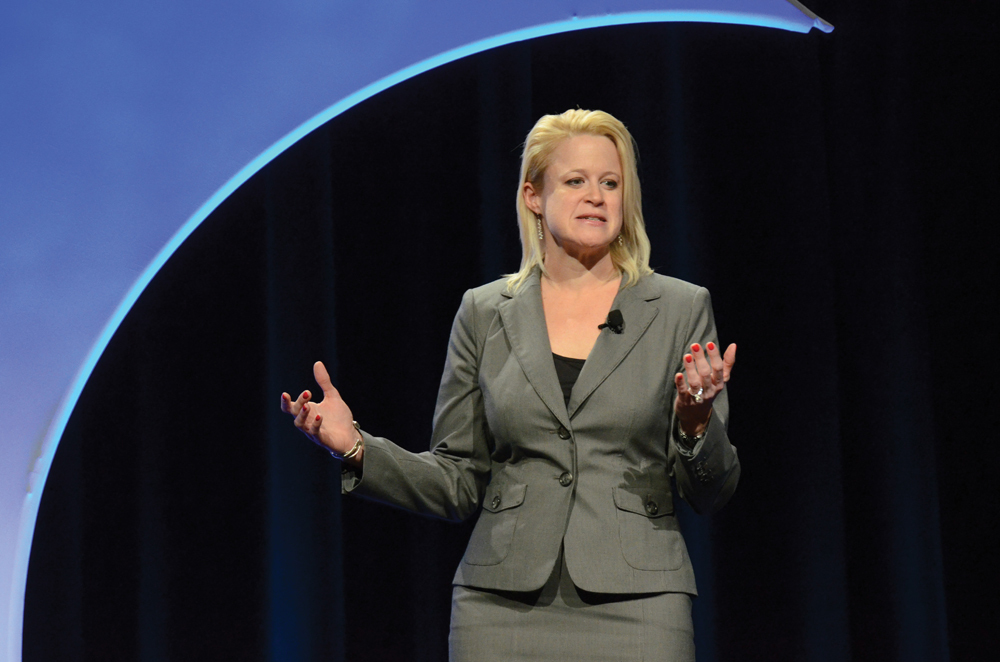National Conference Pinpoints Latest Industry Issues

PHOTO: NATIONAL BIODIESEL BOARD
February 28, 2012
BY Ron Kotrba
The National Biodiesel Conference & Expo took place Feb. 5-8 in Orlando, Fla., where the industry’s latest challenges were laid out: defending the renewable fuel standard (RFS2); restoring integrity in the renewable identification number (RIN) credit markets after instances of fraud in the system designed by U.S. EPA to enforce RFS2 compliance were exposed late last year; and convincing EPA to stand by its original proposal to increase the biomass-based diesel carve-out from 1 billion gallons to 1.28 billion gallons for 2013.
National Biodiesel Board CEO Joe Jobe expressed that RFS2 is still considered “new and vulnerable to attack,” and, therefore the success and protection of RFS2 is the NBB’s—the industry’s—top priority. He made it a point to argue for the reinstatement of the once-again-lapsed $1 per gallon federal blenders tax credit, saying that it “reduces RFS compliance costs.” Jobe also said he and NBB chairman Gary Haer are staffing a new RIN integrity task force of which obligated parties, members of EPA, producers and other stakeholders will be a part. “If you commit RIN fraud, you will go to jail,” Jobe said emphatically. Several small and medium producers at the event told Biodiesel Magazine that they were suffering because they could not timely sell their RINs right now due to obligated party concerns of fraud. Anne Steckel, NBB’s vice president of federal affairs, said the organization has “mobilized all its resources and tapped into its reserves” in its effort to increase next year’s biodiesel mandate to 1.28 billion gallons. Steckel said the tax credit comes into play at this juncture because EPA looks at the tax credit status when considering yearly volumes.
On a general session panel with oil industry representatives, Charlie Drevna, president of the American Fuel & Petrochemical Manufacturers Association, made his position on RFS2 very clear. “It’s not working as intended,” he said, adding that the policy is an anachronism now that the U.S. is more “energy-rich” than in 2007. “I have as much chance of buying a unicorn as I do a gallon of cellulosic ethanol. If it were just you guys (biodiesel), we could make it work. But it’s not.” Regarding RFS2, Drevna said directly to the EPA, “You guys screwed this one up.” Jobe fielded a question from the audience, which asked, “if not this (subsidies and mandates), then what?” meaning, if the oil industry deems subsidies and mandates as the wrong ways to go about developing markets for biofuels, then how should it be done? Drevna’s answer: “consumer choice.”
Advertisement
—Ron Kotrba
Advertisement
Upcoming Events





